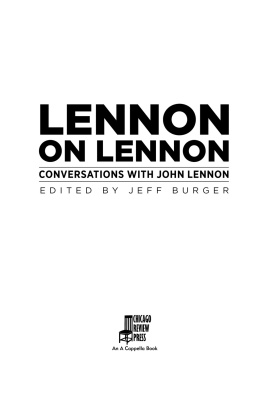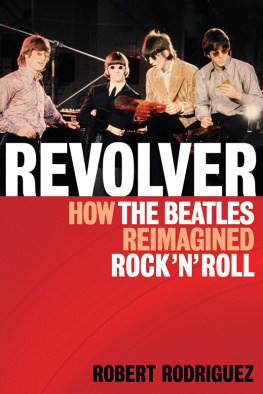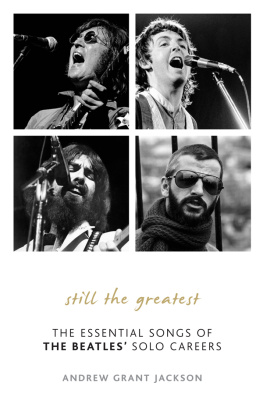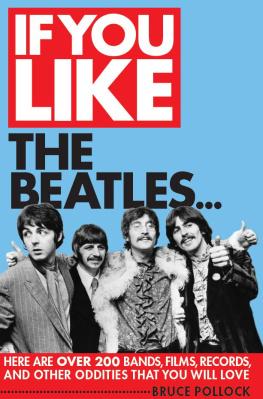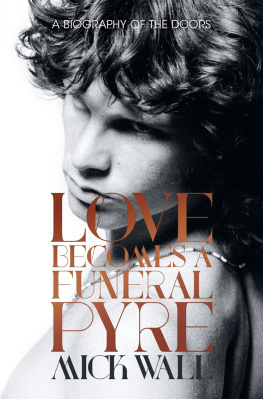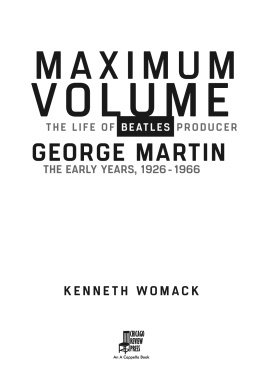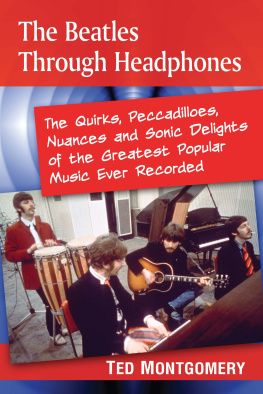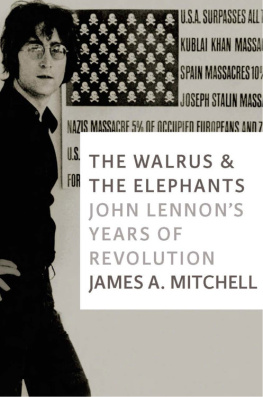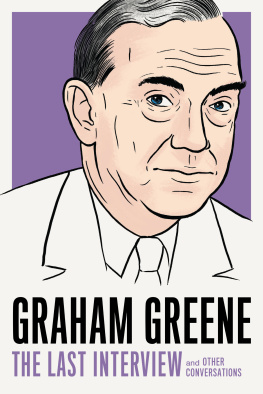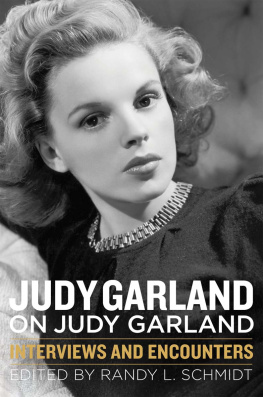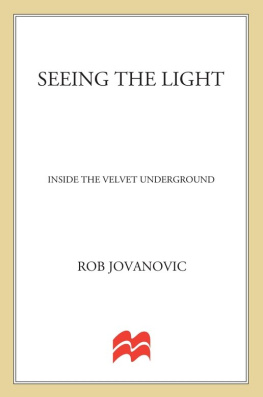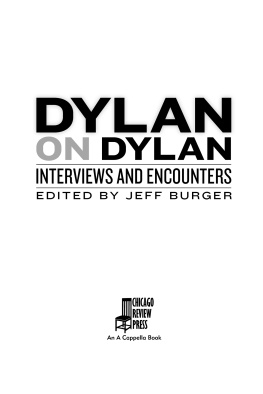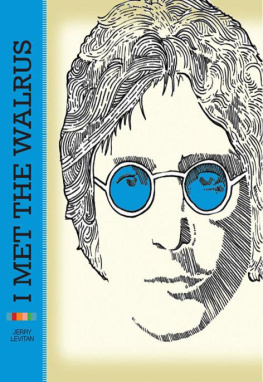All rights reserved.
Published by Chicago Review Press Incorporated
814 North Franklin Street
Chicago, Illinois 60610
Subjects: LCSH: Lennon, John, 19401980Interviews. | Rock musiciansInterviews. | Beatles.
Classification: LCC ML420.L38 A5 2016 (print) | LCC ML420.L38 (ebook) | DDC 782.42166092dc23
LC record available at http://lccn.loc.gov/2016008158
A list of credits and copyright notices for the individual pieces in this collection can be found on pages .
For Madeleine, Andre, and Myriam.
You made my biggest dreams come true.
PREFACE
John Lennon spent only about thirteen years in the public spotlightfrom 1963 until mid-1975 and, following a period of seclusion, during the fall of 1980and he has been gone for nearly three times as long. Yet he remains omnipresent more than thirty-five years after his death. Rarely does a day go by when I dont hear one of his songs, read an item about him in a newspaper or magazine, see his image on a T-shirt, or hear his influence in the work of other artists. Well likely be listening to and talking about this man for many years to come.
His music is only one of several reasons why he remains fascinating. He developed during his years of prominence into a highly opinionated and controversial figure with a commanding personality and quick wit. And for many of the years after he achieved fame, he made a point of living his adventurous life as openly as possible. Whether he was experimenting with LSD, Transcendental Meditation, primal therapy, macrobiotic diets, or recording techniques, the public was on board every step of the way. He spoke candidly about his intense, sometimes tumultuous relationship with Yoko Ono, his split with the Beatles, his squabbles with Paul McCartney, and just about everything else, baring his emotional ups and downs for all to see. He even literally bared himself, on the jacket of his Two Virgins LP and in the iconic photograph of him and Ono that Annie Leibovitz took just hours before he died.
Like the Beatleswho covered the vast distance between I Want to Hold Your Hand and Strawberry Fields Forever in an astonishing three yearsLennon transformed himself during his years in the public eye. He struggles to find words during much of this books first interview, which he gave to a New Zealand radio station on June 21, 1964. But he seems increasingly well spokenand often outspokenin subsequent Beatles interviews; and, by the late 1960s, he evidences not only a keen sense of humor but also strong views on a wide range of issues.
By the time he granted this books, and his, final interviewon December 8, 1980, only hours before his deathhe had become one of the most famous people on the planet and an articulate commentator on politics, human relations, and world peace. The once tongue-tied young man had evolved into someone whose words and music affected millions around the world.
Lennon pushed the limits at every turn, whether he was performing Woman Is the Nigger of the World on The Dick Cavett Show, talking left-wing politics on the mainstream Mike Douglas Show, conducting interviews with Ono from their bed, or holding a press conference with his head covered by a bag. (The couple called this bagism and claimed that it promoted total communication.)
You may say Im a dreamer, Lennon sang in his anthemic 1971 hit Imagine, and he certainly was that. Some of his dreams, opinions, and other pronouncements now sound ahead of their time, or even ahead of ours; others today seem dated, naive, or even ridiculous. During a 1971 conversation with New York radio personality Howard Smith, he appeared to plead poverty, saying, Most of it [the money] never got to us [the Beatles].... We aint got any millions in the bank, Ill tell ya that. At another point, asked to reconcile his penchant for healthy foods with his cigarette smoking, he told Smith, Smoking doesnt harm you as much as all the chemical crap you eat every morning.... I think in the old days the government used to keep you down by not educating you. Now they keep you down by poisoning you.
To borrow an album title from the late rock great Lou Reed, Lennon was growing up in public, which may help to explain why we witnessed such dramatic shifts in his views over time. In 1971 he dismissed his Beatles years in a conversation with left-wing activist Tariq Ali, saying, It was complete oppression. I mean, we had to go through humiliation upon humiliation with the middle classes.... I found I was having continually to please the sort of people Id always hated when I was a child. But a few years later, he was looking back fondly on the Beatles era and speaking critically of Ali and other political activists.
That radicalism was phony, really, because it was out of guilt, he told Newsweeks Barbara Graustark a few months before his death. Being a chameleon, I became whoever I was with. When you stop and think, what the hell was I doing fighting the American government just because [Yippie leader] Jerry Rubin couldnt get what he always wanteda nice cushy job?
While Lennon changed over the years and sometimes mixed silliness with wisdom, he always sounded sincere. And he was never, ever boring. Theres no question in my mind that the world is better off for having dreamers like Lennon, imperfect as they may be. Besides, he was prescient regarding the womens movement and right about a lot of other things, including the Vietnam War, Richard Nixon, and maybe even Onos music, which was widely derided in earlier years but is today cited as a major influence by more than a few artists.
As for the Lennon quotes that now sound puerile, pointless, or anachronistic, well, consider his comment in 1968 that some of his published statements simply said how I felt that day. But do I have to stand by that for the rest of me life just because its in print? Or, as he told talk-show host Dick Cavett in 1971: If... youre in a certain mood, youll say certain things to them [reporters]. And then people bring it back five years later: So you said this, did ya? But youve forgotten all about it. Youve changed your mood, its a different day, its a different year, you know, and youre feeling entirely different.... If everybodys words were recorded as they were saying it, theres lots of things you say that either turn out to be silly or you didnt mean it or its spur-of-the-moment or you meant it or you had foresight or didnt.
Lennon talked often with the media, frequently at great length, and a complete collection of his hundreds of print and broadcast interviews would fill many volumes. In fact, entire books have been devoted to single interviews, most notably Lennon Remembers, a 1970 conversation with Rolling Stone editor Jann Wenner, and The Playboy Interviews with John Lennon & Yoko Ono, which resulted from about twenty hours of talk with journalist David Sheff in September 1980. There is also so much material online that I initially questioned the necessity of this book.
But as I explored Lennons conversations and tracked down informationa task complicated by the fact that many of the interviewers have long since died, as have many of the media outletsI became convinced that this project made sense. The most engrossing discussions were not in one place and many had never appeared in print or even been transcribed. Someincluding conversations that represent more than a third of the material anthologized herehave long been difficult or impossible to find in any form. As for the Q&As that have previously been obtainable, I found countless instances of poorly or incompletely transcribed conversations, inaccurately listed dates and places, misspelled names, and incorrectly attributed comments.

